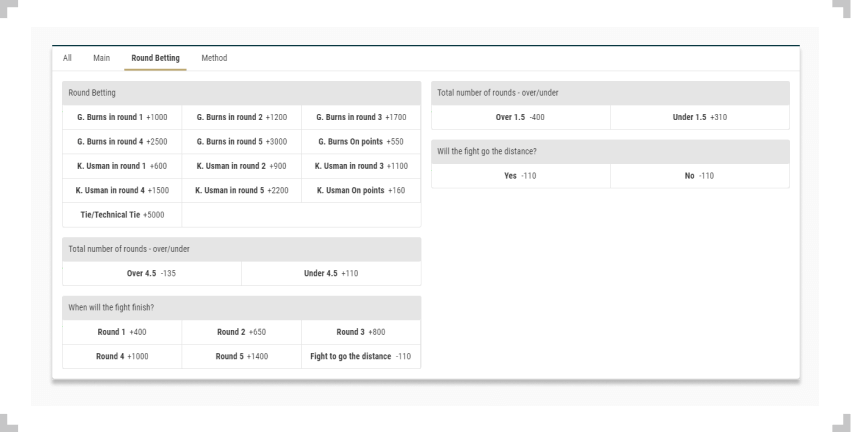What Does Plus 1200 Mean In Betting
- What Does +100 Mean In Betting
- What Does Plus 2.5 Mean In Betting
- What Does Plus 1200 Mean In Betting Mean
The previous answers are right on. However, to fully understand it its called Money Line betting. This is a MONEY LINE BET. Wagering on the Money Line is predominantly the American way of betting. In England bettIng is done thru Fractional Odds.
- Not only does it remain the king when it comes to wagering on pro football, it is a favorite in online sports betting among pro bettors and beginners alike. Also known as the line and as betting “sides,” a common misconception is that sportsbooks set the pro football spread as a predicted margin of victory.
- A $10 bet on +120 odds would pay out $12 in profits. Examples: Below is an example of NFL betting odds taken from an online betting site. In this example you can see Los Angeles is listed at +130 ($100 bet pays $130 plus of course your original wager back) and New England is listed at -150 ($150 bet.

Welcome to the Sports Betting Odds section of The Sports Geek. If you are new to sports betting and don’t understand how to read betting odds (+150, -110, +2200, etc) we will lay it all out for you and help you learn how the betting odds work.
Betting Site | Bonus | Bet Now | |
|---|---|---|---|
| 1 | up to €30 Free Bet | Go to Site | |
| 2 | 22Bet | 100% up to €122 | Go to Site |
| 3 | 100% up to €200 | Go to Site | |
| 4 | 10Bet | 100% up to €50 | Go to Site |
| 5 | 100% up to €50 | Go to Site |
Sports Betting Odds Explained
Many people don’t know how to read or calculate sports betting odds, so below we have done our best on explaining how betting odds work. The most common type of sports betting odds used in North America are the American style odds which we explain below.
American Style Sports Betting Odds
Most online sportsbooks will list their odds in what is called “American Odds”. There are a couple different versions of sports betting odds, but these American Odds are the most common odds used. Reading and understanding sports betting odds can bet a little confusing to beginners, so we have provided an example below using two NFL football teams:
American Odds
- Matchup Odds
- New England Patriots +120
- Pittsburgh Steelers -140

The number shown in the bracket represents the odds. The American Odds have two components to them, the first being the positive or negative sign, and the second being the number that follows the sign.
The sign in front of the number indicates whether placing a wager on that outcome will pay out more money then you have wagered or less money then you have wagered. If the odd is negative (-) it means that outcome is more likely to happen and placing a bet on that outcome would payout less than the amount you wagered, while a positive (+) odd shows that the outcome is less likely to happen and it would pay out more than the amount you wagered.
The next step is figuring out exactly how much the bet pays out, which is where the numbers in the odds come into play.
A listed odd with a – sign in front of it, such as the -140 in our example above, shows us how much money you would need to wager in order to win $100. So using the -140, this would show us that you would need to bet $140 in order to win $100 in profits. You can easily substitute the $100 bet for a $10 bet by moving the decimal place over one spot, showing us that you would need to wager $14 in order to win $10 in profits.
Examples:
A listed odd with a + sign in front of it, such as the +120 in our example above, shows us how much money you would win on a $100 bet. Using the +120 odds, it shows us that a $100 bet on that outcome would pay out $120 in profits. Again this can easily be converted into smaller or larger size bets. A $10 bet on +120 odds would pay out $12 in profits.
Examples:
Below is an example of NFL betting odds taken from an online betting site.
What Does +100 Mean In Betting

In this example you can see Los Angeles is listed at +130 ($100 bet pays $130 plus of course your original wager back) and New England is listed at -150 ($150 bet pays $100).
The great thing about betting online is that the online sportsbooks will do the calculations for you before you place your bet. You can click on the outcome or team you would like to bet on, and then input the amount you wish to wager and it will show you your potential pay out before you confirm your bet.
Ready To Start Betting?MyBookie and BetUS are my two favorite sportsbooks and make betting very easy. You will also get a Free Money Bonus at each sportsbook if you follow either link above.
Decimal Style Sports Betting Odds
Decimal style odds are used mostly in Europe, and are pretty easy to understand. To calculate the decimal style odds all you will need to do is simply multiply the amount you wish to wager by the decimal odds shown and you will get your payout. For example it may look something like this:
If you wanted to place a $10 wager on the USA at 2.40 you would simply need to multiply your $10 wager by the 2.40 odds (10 x 2.40) to find out that the payout is $24. It is important to realize that with decimal style odds it includes the amount you wagered, so to find out profits you would need to subtract your wager ($24 – $10) to find out your potential payout is $14 in profits.
If you wanted to place a $10 wager on Brazil you would again just multiply $10 x 1.55 to find out that you would win $15.50 total or $5.50 in profits.
Decimal style betting odds are very simple to understand, but you won’t see them displayed in many North American sportsbooks. With that said, most online betting sites will allow you to chose the style of betting odds you want displayed, with American odds set as the default.
We think it's important for you to understand how we make money. It's pretty simple, actually. The offers for financial products you see on our platform come from companies who pay us. The money we make helps us give you access to free credit scores and reports and helps us create our other great tools and educational materials.
Compensation may factor into how and where products appear on our platform (and in what order). But since we generally make money when you find an offer you like and get, we try to show you offers we think are a good match for you. That's why we provide features like your Approval Odds and savings estimates.
Of course, the offers on our platform don't represent all financial products out there, but our goal is to show you as many great options as we can.
This article was fact-checked by our editors and Christina Taylor, MBA, senior manager of tax operations for Credit Karma Tax®.
Betting on sports is part of the fun for many sports fans — even if their wagering hasn’t always been technically legal.
Until a May 2018 U.S. Supreme Court decision opened the door for every state to legalize sports betting, just four states allowed wagering on sports — Nevada, Delaware, Montana and Oregon. Legality, however, hasn’t stopped Americans from betting on sports. In fact, the American Gaming Association estimates that Americans spend more than $150 billion a year on illegal sports betting.
Since the Supreme Court’s ruling, New Jersey, Pennsylvania, West Virginia, Mississippi and Rhode Island have legalized sports betting. And other states are considering laws to permit wagering on sports.
But when you gamble on sports, it won’t matter to the IRS if your winnings came from a legal bet or from one that’s off the books. Your winnings are taxable income either way.
If you plan to do some wagering in a state that’s legalized sports betting, it’s important to understand how tax on your winnings will work. Let’s take a look at how the IRS treats gambling winnings of any kind.
Sports-betting winnings are taxable income
The big question for sports gamblers: Are your winnings taxable income? As we said above, the answer is yes.
What Does Plus 2.5 Mean In Betting
“Gambling winnings are fully taxable and you must report the income on your tax return,” the IRS says. “Gambling income includes but isn’t limited to winnings from lotteries, raffles, horse races and casinos. It includes cash winnings and the fair market value of prizes, such as cars and trips.”
Although sports betting isn’t one of the examples, it’s still covered by “gambling winnings.”
Whether sports betting is legal in the state where you place your bet doesn’t matter to the IRS. If you win, you have taxable income, which should be reported when you file your tax return.
These rules apply only to casual sports bettors. If you’re a pro — “in the trade or business of gambling,” as the IRS puts it — different rules apply.
How much tax you’ll owe depends on your personal tax situation and tax bracket.
You might also owe state income tax on any money you win from betting on sports, depending on which state you live in. For example, Nevada doesn’t have a state income tax. But Maryland does, and it considers winnings from gambling taxable income. If you win money betting on sports, check with your state to see if it taxes gambling winnings.
Form W-2G: Evidence of your sports-betting win
So you win a couple thousand bucks betting on your favorite sports team. How will the IRS know if you don’t tell it? Well, whomever you won the money from — a casino, racetrack, etc. — is supposed to report your winnings to the IRS on Form W-2G. The form tells the IRS some important information, including …
- Contact information for the payer who awarded you the winnings, including phone number, address and federal tax identification number
- Your name, address and taxpayer identification number
- How much you won
- When you won it
- What kind of wager you made
- And how much, if any, federal and state income tax the payer withheld from your winnings
Generally, the payer has to report your winnings if …
- You won $1,200 or more from a bingo game or slot machine
- You raked in $1,500 or more at keno
- Your poker victory tops $5,000
- You won $600 or more and your winnings are at least 300 times the amount of your bet (bingo, slots, keno and poker are exceptions to this rule)
- The payor withheld federal income tax on the winnings

Penalties for not reporting sports-betting income
Of course, the IRS wants you to report all your taxable income, and if you don’t you could face penalties and interest on any tax you owed but didn’t pay.
Generally, the penalty for not paying income tax that you owe is 0.5% of the unpaid tax. That rate is assessed monthly until you pay the tax you owe. Unpaid tax and penalties typically accrue interest, too — 5% compounded daily from the due date of your tax return to the date when you actually pay in full the balance of any tax, penalties and interest you owe.
However, if you’re caught intentionally omitting income — like gambling winnings — from your tax return in order to avoid paying tax on that income, it could mean additional penalties. According to the tax code, trying to “evade or defeat” tax you owe on income you’re required to report could be a felony with fines of up to $100,000 for individuals or five years in prison. Plus, people convicted of tax evasion can be held responsible for the costs of prosecution.
Lose a sports bet? It might be deductible!
Just as sports-betting winnings are considered taxable income, losses may be tax-deductible if …
What Does Plus 1200 Mean In Betting Mean

- You itemize your deductions
- You keep detailed records of your winnings and losses
“To deduct your losses, you must keep an accurate diary or similar record of your gambling winnings and losses and be able to provide receipts, tickets, statements or other records that show the amount of both your winnings and losses,” the IRS says.
Any losses you deduct cannot exceed winnings that you report when you file your return. For example, if you reported winnings of $5,000, you could deduct losses only up to that amount. Additional losses would not be deductible. And if you lost $5,000 but didn’t win anything, you wouldn’t be able to deduct those losses at all.
If you’re eligible to deduct your sports-betting losses — or any other gambling losses — you’ll do so on Schedule A.
Bottom line
More than a quarter of Americans like to bet on football, 21% are interested in betting on baseball or basketball, and 20% would put some money down on a hockey game, according to Nielsen Sports. If you’re a fan of sports wagering, it’s important to understand that tax on sports betting is nothing new.
The IRS has always considered gambling winnings taxable income, and it expects you to report all your taxable income — even the money you win betting on sports.
If you’ll be reporting gambling winnings on your federal income tax return, or hoping to write off some gambling losses, be sure to keep detailed records of your wagers and losses.
Christina Taylor is senior manager of tax operations for Credit Karma Tax®. She has more than a dozen years of experience in tax, accounting and business operations. Christina founded her own accounting consultancy and managed it for more than six years. She co-developed an online DIY tax-preparation product, serving as chief operating officer for seven years. She is the current treasurer of the National Association of Computerized Tax Processors and holds a bachelor’s in business administration/accounting from Baker College and an MBA from Meredith College. You can find her on LinkedIn.